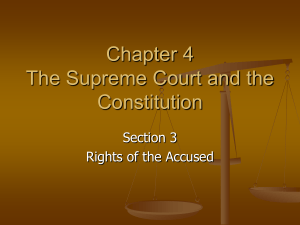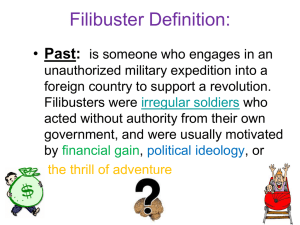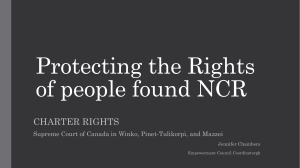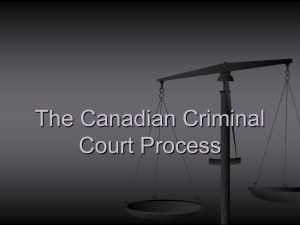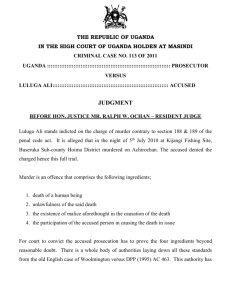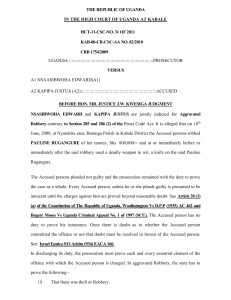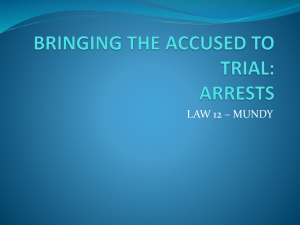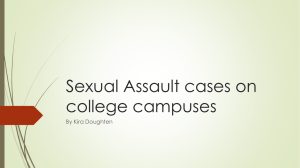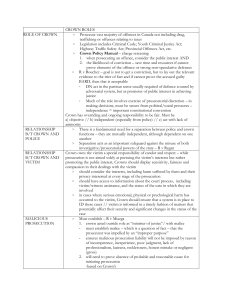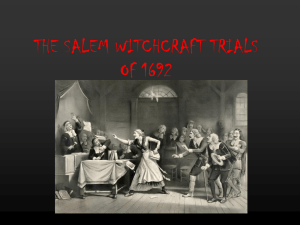Pre-Trial Procedures
advertisement
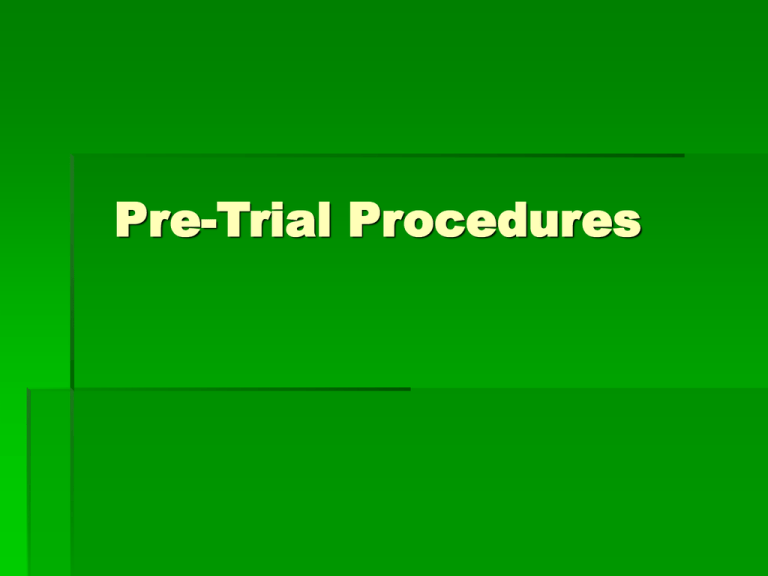
Pre-Trial Procedures Release before trial Few people charged with a crime are held in jail until their trial There must be good reason to keep someone in custody before the trial The police may release a person: 1. If after some questioning or investigation the person does not appear to have committed the offence 2. If they sign a promise to appear which is a promise to show up for court 3. If they sign a recognizance which is an agreement to pay up to $500 if the accused does not appear in court for trial. If the accused is not released by the police they are brought before a Justice of the Peace within 24 hours for a Show Cause The Crown must show why the accused should not be released before trial Some of the reasons why the crown may Show Cause: 1. They pose a threat to others 2. They might reoffend if released 3. They might flee jurisdiction 4. They may not appear for trial 5. There is concern that the justice system is not working in the public’s best interest if the accused is release If the JP does not agree with the Crown during the Show Cause they can release the accused and impose any of the following conditions. 1. The accused may be denied association with certain people, or must remain in a specific area or give up their passport 2. The accused must pay a recognizance with or without sureties which are people who will have to pay if the accused fails to appear in court 3. The accused must make a money deposit along with the recognizance Preparing an Indictment Before any trial the Crown prepares an Indictment which is a formal written accusation of the charges The indictment gives formal notice to the accused of the specific charges Pre-Trial Conference A pre-trial conference is usually held after the indictment has been prepared At the conference the judge, Crown and Defence discuss issues related to the trial The Crown must make full disclosure to the defence of any evidence that has been obtained Plea Bargain Many people charged with a crime admit to it but when someone pleads not guilty the Crown may offer a Plea Bargain A Plea Bargain is an agreement between the Crown and Defence It may include: 1. Reduction in the original charge 2. Withdrawal of pending charges 3. Recommendation of sentence (reduction of sentence) 4. Prosecution of summary rather than indictable offence 5. Avoidance of a prison sentence 6. Recommendation not to apply for a harsher penalty if there is a previous conviction Preliminary Hearing An accused charged with an indictable offence may choose trial by judge alone or by judge and jury The accused has the option of a preliminary hearing The purpose of the preliminary hearing is to weed out weak cases and give the accused a chance to see the Crown’s case At the hearing the witnesses are called, examined and cross-examined The defence does not have to call witnesses and in almost all cases does not. The Crown only has to show they have sufficient evidence not prove beyond a reasonable doubt. The judge may order a publication ban The accused may wave their right to a preliminary hearing if: They plead guilty They want to proceed to trial quickly They want to avoid further expense They want to avoid negative publicity

